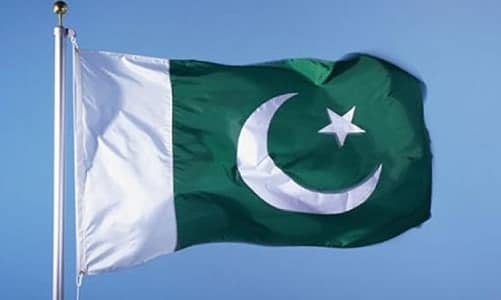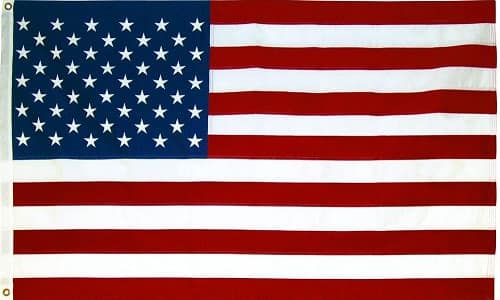Nuclear warfare has become a major cause of concern for the whole planet at present, with a large number of countries acquiring powerful nuclear weapons, which can become a threat for the human race as a whole. However, these countries advocate possession of such weapons with the argument that they are necessary to protect their peace and sovereignty from enemies with similar powers.
Pros and Cons of Nuclear Weapons
Nuclear weapon is an explosive device and there has always been a debate as to whether or not a country should possess nuclear weapons. Many powerful countries in the world namely the US, Russia, North Korea and others are rich in nuclear weapons. In this article, we shall see the pros and cons of nuclear weapons.
Pros of Nuclear Weapons
- The power of a nation which is rich in nuclear weapon is too high. The nuclear attacks on Japan and other countries are testimony of the fact, that nuclear attacks can easily destroy a country in a matter of a few minutes. Hence, when you are country rich in nuclear weapons, the world revers and respects you.
- It Prevents the Occurrence of war: when a state has nuclear weapons, there are very less chances that the state is attacked as all the other states around the world is weary of such a country which is rich in nuclear weapon.
- When a country is rich in nuclear weapons, the possibility of a war is reduced as the opponent country will prefer a peaceful
Cons of Nuclear Weapons
- A nuclear weapon war can destroy a country altogether in a matter of a few minutes.
- Most of the nations declare that nuclear weapon is required by them for the purpose of defending themselves against enemies. However, the same may not be true in all the cases. There are countries who tend to misuse the nuclear weapons and wage war against their enemies destructing innocent lives
- It is very expensive to maintain all the nuclear weapons. All the countries who have these weapons incur high costs on them and thus the common people suffer as their government has little money to spare for their development
- Finally, the risk that is caused to the human life is huge. Once used, the aftereffects of its usage remain for a long time, leading to a huge loss of life.
In the wake of the above pros and cons, the world should be extremely careful before developing the costly and powerful nuclear weapons!
Here are the top nuclear power countries in the world:
9. North Korea

North Korea is on number 9 in this list, which has come to the nuclear power scene more recently, the first test being carried out in 2006. Currently, North Korea has 10 nuclear warheads and has conducted a total of 3 nuclear tests, with the most recent one in 2013.
8. Israel

Featuring next on this list of biggest nuclear powers in the world is the small nation of Israel, which has as many as 80 warheads. The other statistics about nuclear tests conducted by Israel are not known.
7. India

Next on the list of top 10 nuclear power countries of the world is India, which has estimated 110-120 warheads with it. Out of the 6 nuclear tests carried out by the country, the first one was conducted in 1974 and the most recent one in 1998.
6. Pakistan

Pakistan occupies sixth position on this list, with estimated 120-130 weapons in stock. The country carried out a total of 6 nuclear tests, all in 1998, which greatly escalated tension in this part of the world at that time.
5. United Kingdom

With an estimated 225 nuclear warheads in its inventory, United Kingdom comes on number 5 in the list of top 10 nuclear power countries of the world. Till date, United Kingdom has carried out 45 nuclear tests, the first one being in 1952 and the most recent one in 1991.
4. China

China is another major nuclear power country of the world, with came to the nuclear weapon scenario in 1964 with its first nuclear test. Today, the country owns nearly 250 nuclear warheads and has conducted 45 nuclear tests in all, with the last one back in 1996.
3. France

On number 3 in this list is France, which has an estimated 300 nuclear warheads. The country registered its presence in this field in 1960 by conducting its first nuclear test, and has conducted 210 such tests till date, the most recent one being conducted in 2006.
2. United States

Featuring on number 2 in the list of top 10 nuclear power countries in the world is United States, which has 7700 nuclear weapons in its inventory. It has conducted around 1054 nuclear tests, with the first one back in 1945 and the latest one carried out in 1992.
1. Russia

Russia is considered as the biggest nuclear power country in the world, with an estimated 8500 warheads in its control. The country has conducted a total of 715 nuclear tests till date, with the first test dating back to 1949 and the most recent one conducted in 1990.
All these countries are considered among the most powerful as far as nuclear weapons are concerned, but are expected to show restraint in their use for the betterment of the world.
Nuclear Weapons FAQs
Q1. How do nuclear weapons work?
Ans: Nuclear weapons work by initiating a chain reaction of nuclear reactions. In fission weapons, such as atomic bombs, a small amount of fissile material, such as uranium-235 or plutonium-239, is brought into a supercritical mass, resulting in a rapid release of energy. Fusion weapons, known as hydrogen bombs or thermonuclear bombs, use the energy from a fission reaction to trigger a fusion reaction, which releases even more energy.
Q2. Are nuclear weapons used in modern warfare?
Ans: Since the bombings of Hiroshima and Nagasaki in 1945, nuclear weapons have not been used in warfare. The use of nuclear weapons is considered a last resort due to their devastating consequences, including mass destruction, loss of life, and long-term environmental and health impacts. The international community has made efforts to prevent their use through arms control agreements and non-proliferation efforts.
Q3. Are there any international agreements or treaties on nuclear weapons?
Ans: Yes, several international agreements and treaties aim to regulate and reduce the spread of nuclear weapons. The most significant treaty is the Treaty on the Non-Proliferation of Nuclear Weapons (NPT), which has been signed by most countries. Other important agreements include the Comprehensive Nuclear-Test-Ban Treaty (CTBT) and various arms control agreements between nuclear-armed states, such as New START between the United States and Russia.
Q4. Can nuclear weapons be disarmed or decommissioned?
Ans: Yes, nuclear weapons can be disarmed and decommissioned through deliberate disarmament efforts. Many countries have engaged in disarmament initiatives to reduce their nuclear arsenals. The process involves dismantling nuclear warheads, disposing of fissile material, and ensuring transparency and verification measures to prevent their proliferation.
Q5. What are the risks associated with nuclear weapons?
Ans: The risks associated with nuclear weapons include accidental or unauthorized use, the potential for a nuclear conflict, proliferation to additional countries or non-state actors, and the humanitarian and environmental consequences of their use. There are ongoing efforts to mitigate these risks through diplomacy, arms control, and disarmament initiatives.
Santosh Kumar, the author behind IndiasStuffs.com, is passionate about sharing valuable insights on a variety of topics, including lifestyle, technology, and Indian culture.
Page Contents

